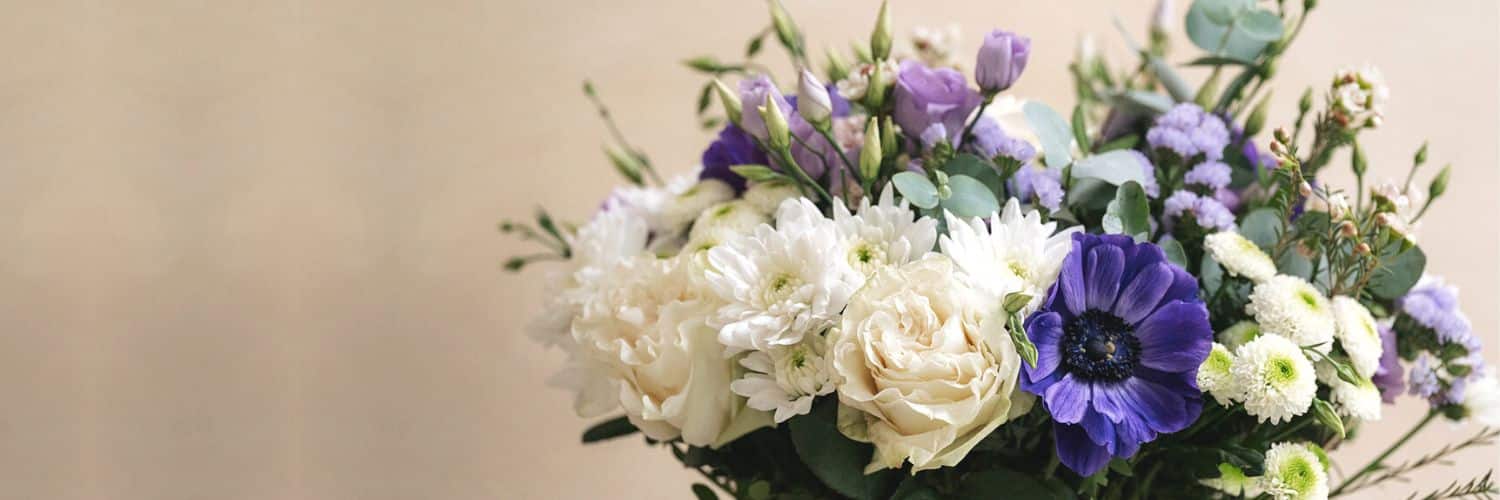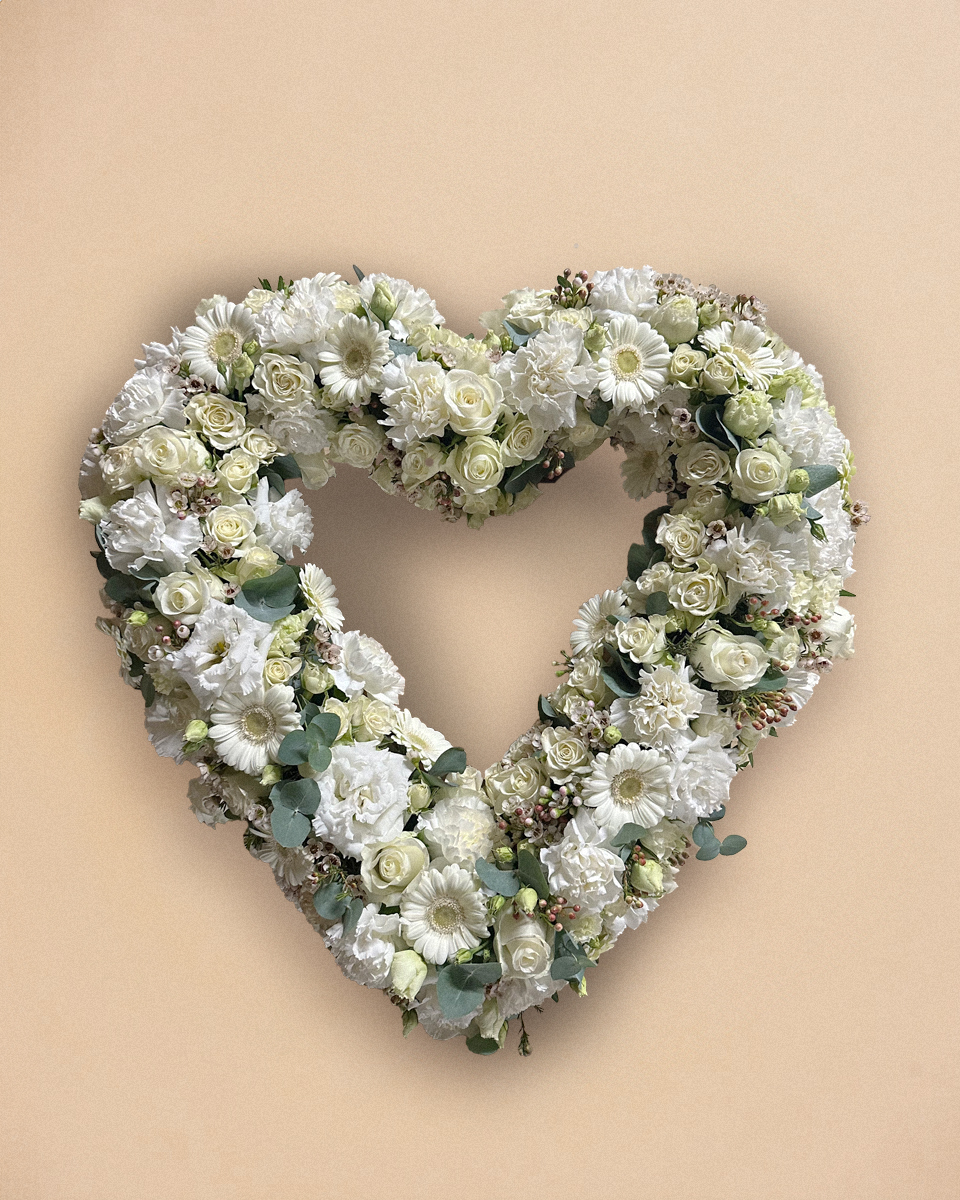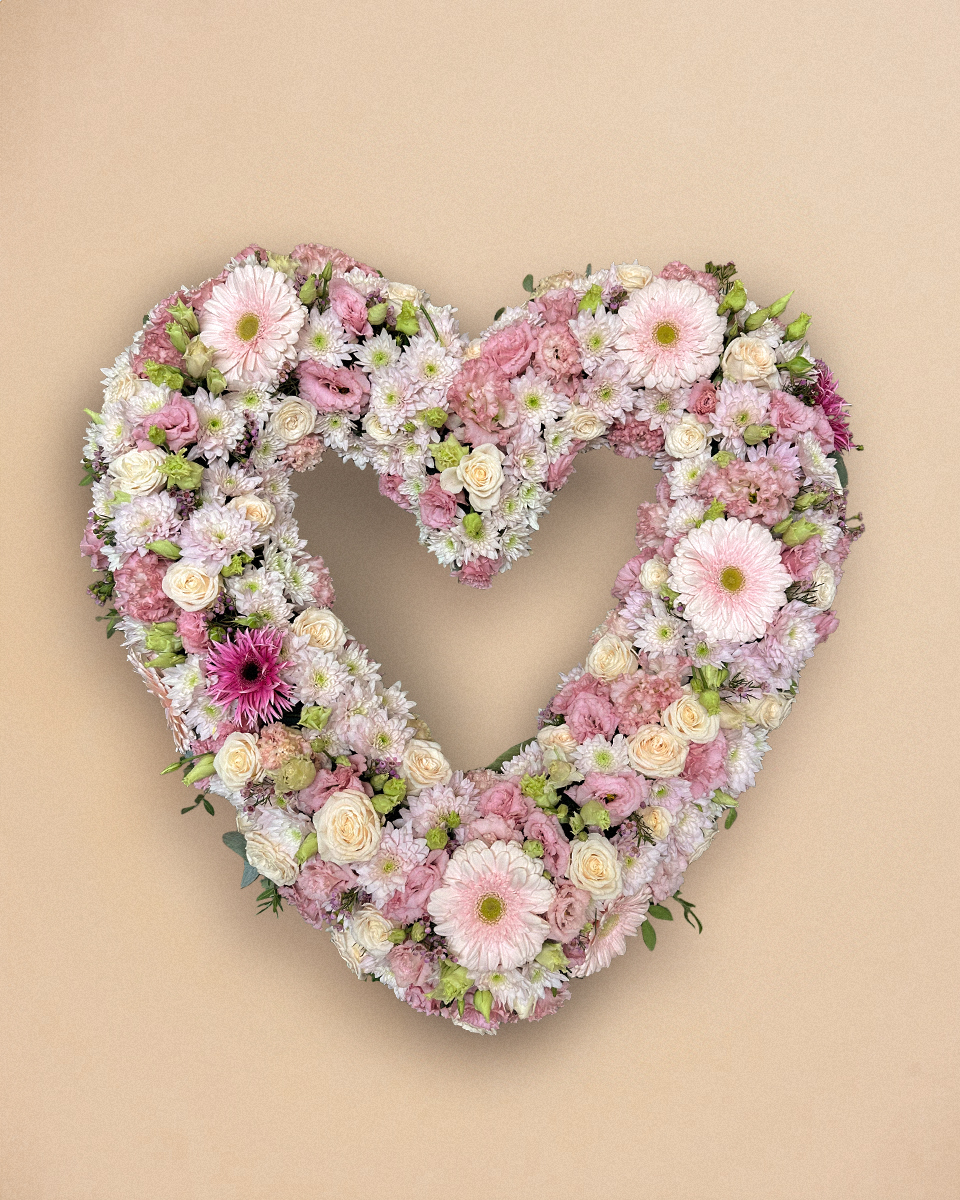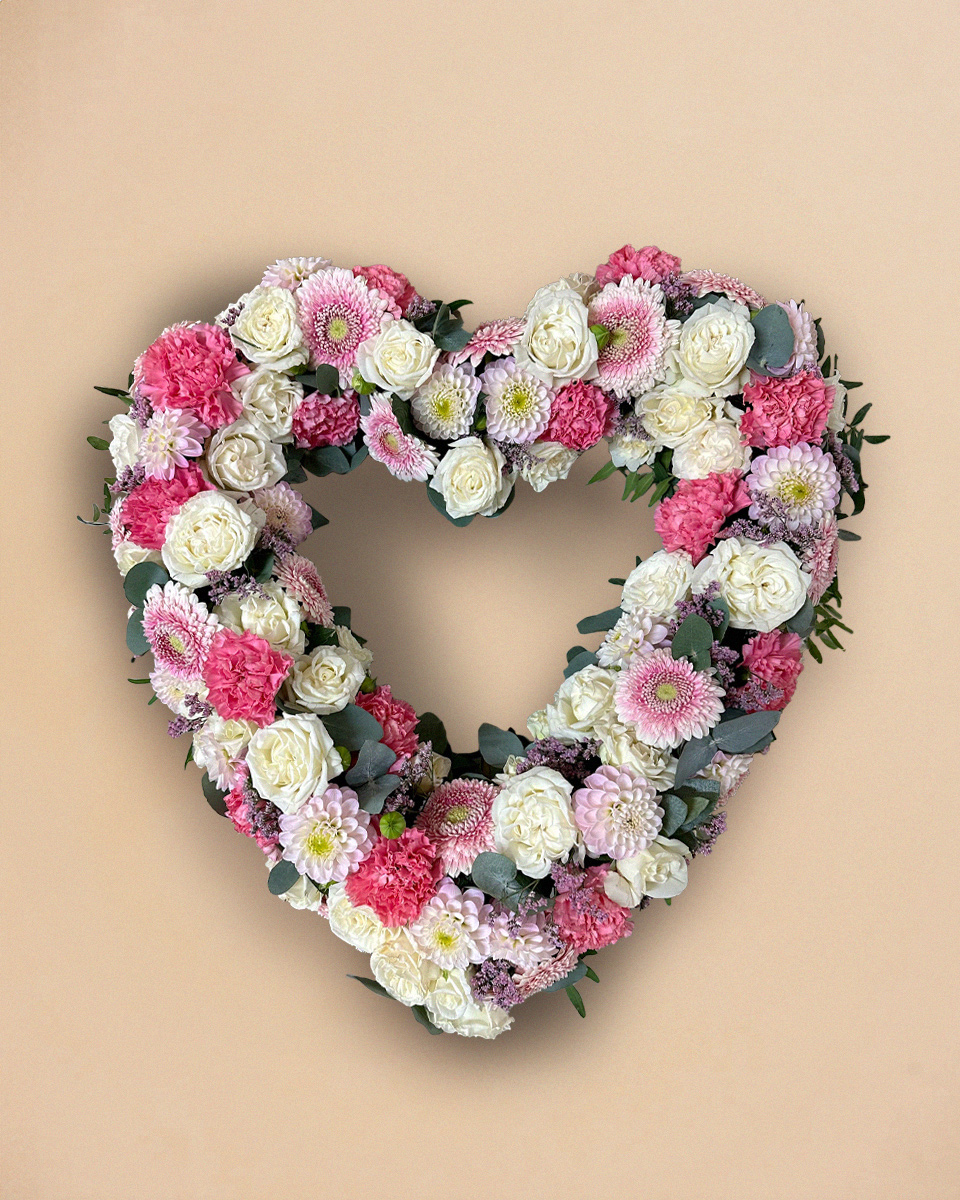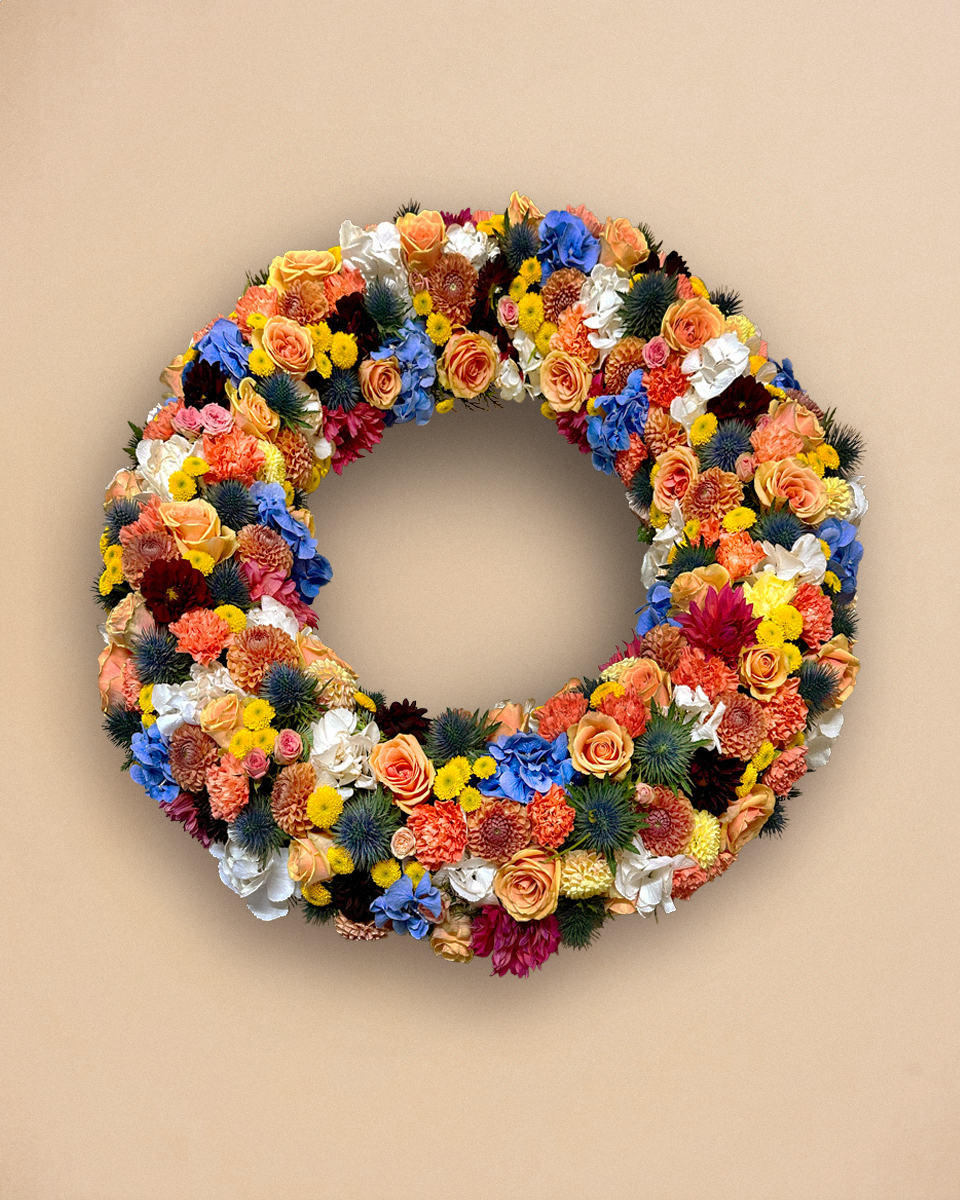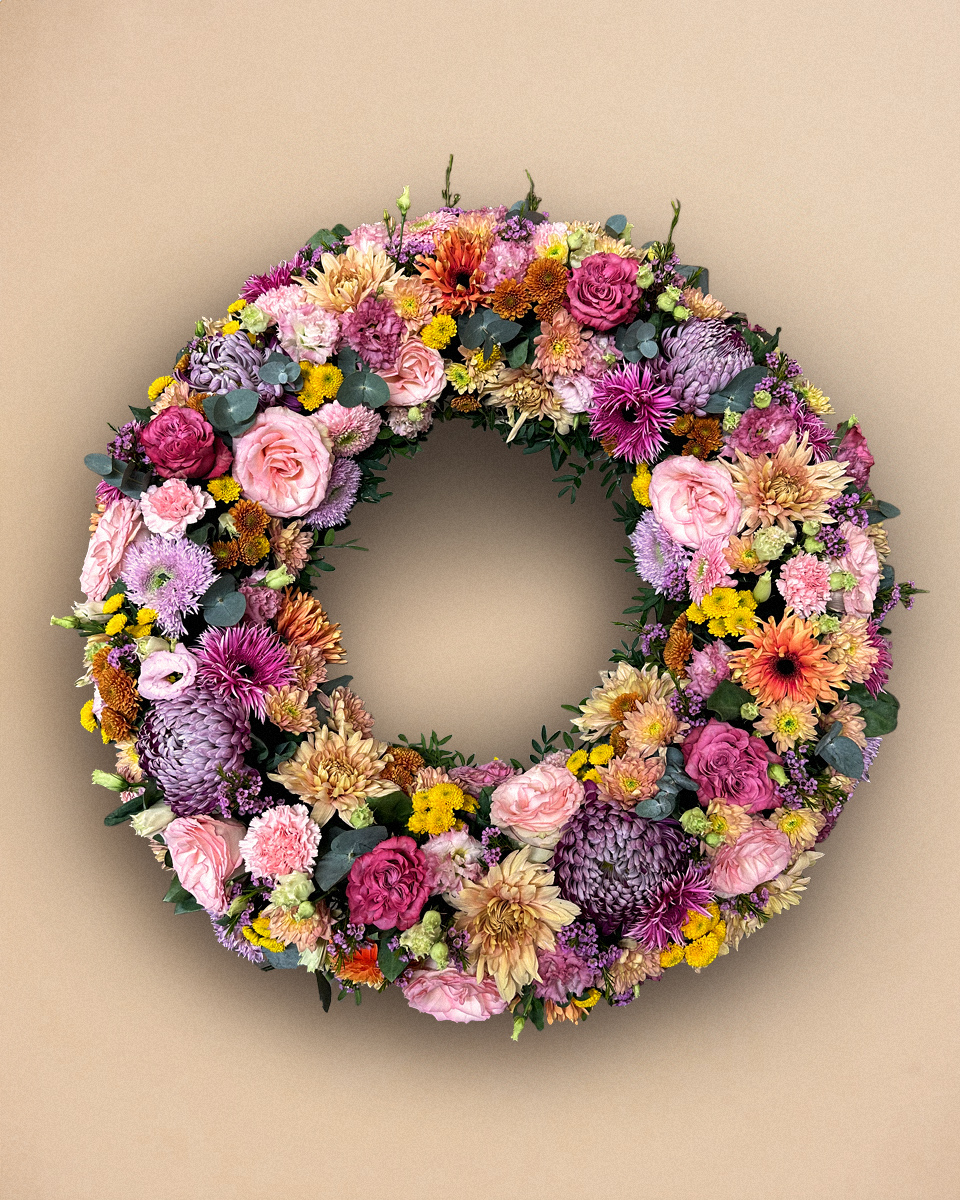Our bereavement flowers
-
Classic Mourning Heart
From CHF255.00 -
Classic Mourning Heart
From CHF255.00 -
Classic Mourning Heart
From CHF255.00 -
Prestige mourning wreath
From CHF455.00 -
Prestige mourning wreath
From CHF455.00 -
Prestige mourning wreath
From CHF455.00
Our bereavement flowers
-
Classic Mourning Heart
From CHF255.00 -
Classic Mourning Heart
From CHF255.00 -
Classic Mourning Heart
From CHF255.00 -
Prestige mourning wreath
From CHF455.00 -
Prestige mourning wreath
From CHF455.00 -
Prestige mourning wreath
From CHF455.00
Meaning and symbolism of flowers
| Flower | Meaning |
|---|---|
| Lily | Purity and the hope of renewal |
| Orchid | Beauty, love and respect |
| Chrysanthemum | Traditional association with mourning |
| Azalea | Restraint and sobriety |
| Rosebush | Eternal love |
| Oleander | Strength and resilience in the face of grief |
| Hydrangea | Deep and sincere emotions |
Perennial vs. flower bouquet
Choosing between a perennial plant and a bouquet of flowers in times of mourning can be a tricky decision. A perennial plant, by virtue of its longevity, becomes a lasting symbol of the memory of the departed, offering a constant reminder of life and its continuity. Bouquets, on the other hand, offer a fleeting but intense beauty, reflecting the precious and temporary nature of existence. Your choice may vary according to the message you wish to convey or the personal preference of the bereaved family.
Perennials for bereavement gifts
- Lily : symbolizes purity and the hope of renewal.
- Orchid : the symbol of beauty, love and respect.
- Chrysanthemum : traditionally associated with mourning.
- Azalea : represents restraint and sobriety.
- Rosebush : symbolizes eternal love.
- Oleander and Hydrangea : other popular options.
Special care for perennials
These plants need to be pampered to thrive.
First of all, make sure you understand the specific needs of the plant you've chosen or received. Each species has its own requirements in terms of light, water and soil type. Lilies, for example, will thrive in a bright spot but not in direct sunlight, while orchids prefer well-lit environments without being exposed to direct sunlight.
We recommend keeping the soil moist but not saturated with water. Allow the soil to dry out slightly between waterings, avoiding stagnant water which could damage the roots and therefore the health of the plant.
Don't forget the need for appropriate fertilization. Perennials will benefit from a well-balanced fertilizer, applied as recommended to each plant. Proper nutrition will ensure healthy growth and abundant flowering.
FAQ
1. Why choose specific flowers for a bereavement?
Flowers convey deep, universal messages of love, respect and sympathy. Choosing a specific flower for bereavement allows these feelings to be expressed with nuance, offering symbolic support to bereaved loved ones.
2. Are there alternatives to traditional bereavement flowers?
Absolutely. In addition to traditional choices, consider alternatives such as poppy flowers, symbols of eternal sleep and peace, or camellia flowers, expressing admiration and self-improvement. These less conventional choices can add a personal and meaningful touch to your gesture.
3. How can the choice of a flower be influenced by cultural beliefs or traditions?
Cultural traditions and beliefs play a role in the choice of flowers for a mourning. For example, in some cultures, white is the color of mourning and purity, making white lilies or white roses particularly appropriate.
4. Can we give colored flowers in mourning?
Yes, although white flowers are traditionally associated with mourning, giving colorful flowers can be a way of celebrating the life of the deceased, especially if the colors reflect their personality or preferences.
5. How to personalize a floral arrangement for a bereavement?
Personalizing an arrangement can be done by including flowers or objects that had special meaning for the deceased or his or her family. Adding a ribbon with a personal message or choosing flowers in the deceased's favorite colors can make your offering unique and touching.
6. Is it appropriate to send flowers for a bereavement at home?
Sending flowers to the home of the bereaved family is an appreciated mark of support and sympathy. It allows you to express your condolences in a personal way, especially if you can't attend the funeral.
7. What if you want a lasting gesture rather than an ephemeral bouquet?
For a lasting keepsake, consider giving a tree or shrub to plant in memory of the deceased. It's a meaningful way to pay tribute to the life of the departed, with something that will grow and thrive over time.
8. Do mourning flowers always have to be sober and traditional?
No, the most important thing is to reflect the personality of the deceased and the wishes of the family. If the deceased loved bright colors or had an unconventional favorite flower, it's entirely appropriate to choose an arrangement that celebrates this.
9. How can we ensure that our floral gesture for a bereavement is respectful?
Find out about the family's preferences and any restrictions related to the place of worship or crematorium. Respecting these guidelines ensures that your gesture will be received in the most respectful and appreciated way.
10. Are there specific times after the bereavement when sending flowers is particularly appreciated?
In addition to sending flowers immediately, marking the anniversary of the death or other significant dates with a bouquet can be a heartwarming way to show that you remember and share the memory of the deceased with loved ones.
Our customer testimonials on over 10,000 bouquets delivered in Switzerland
4.9/5

